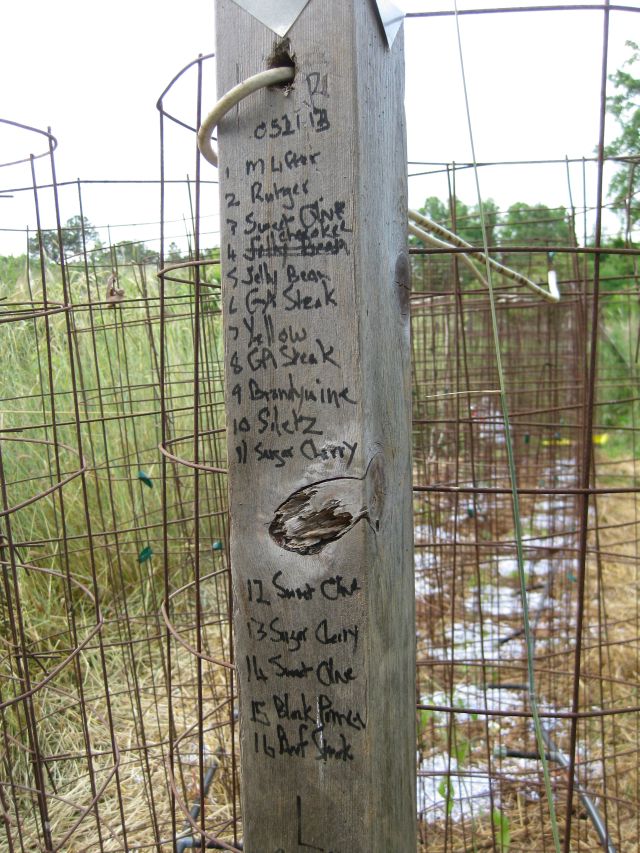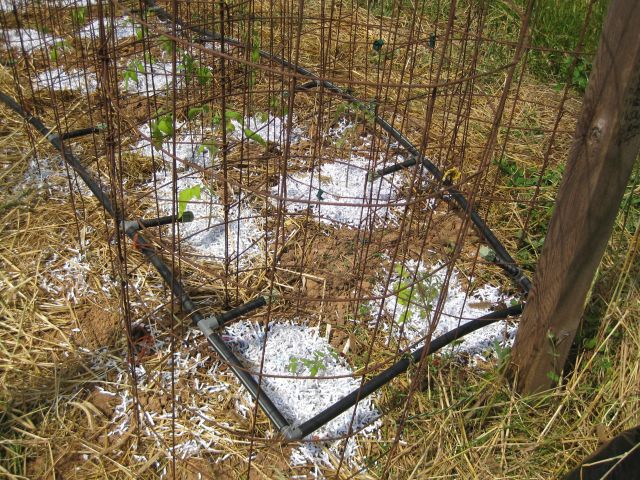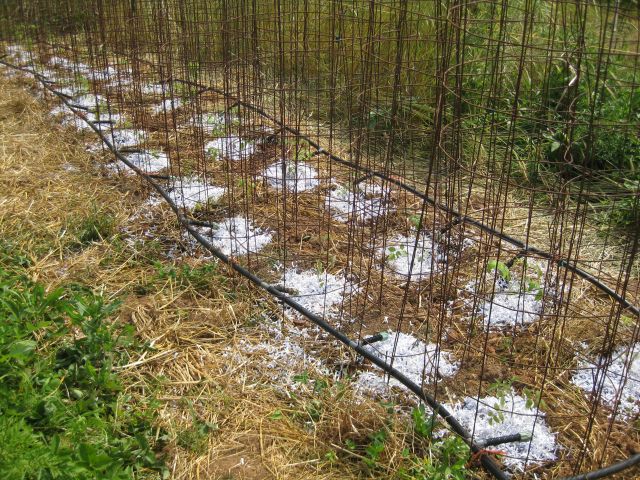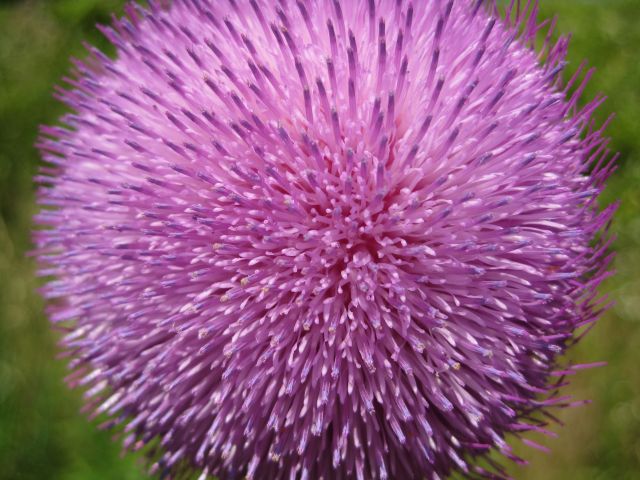My main ritual early each summer is the planting out of the tomatoes. I grow these from seed, initially in the basement (0.75″ soil blocks) then in the greenhouse (2″ soil blocks). My first year was a glorious year, since then hard going. Not beginner’s luck but a case of slipping under the radar the first time. Now each year the pests and problems await me. Though I rotate the growing site, this does not thwart the soil borne diseases – there is an interesting piece in this morning’s NYT on using grafted tomatoes – maybe next year. The biggest problem is the stink bugs, which each year multiply and love despoiling my tomatoes.
Undaunted I press ahead. This year I planted 32 plants, less than last year. And, for the first time in two adjoining rows of 16 plants each. Previously I took care to wrap the stems just above and below the ground with aluminum to foil soil disease transmission – this year I just mulched with shredded paper waste.
Each plant has a name tag, but these frequently go missing, so I also noted the details on a post which carries the cable securing the wire cages.

The varieties, which include heirloom and hybrid, are: Mortgage Lifter, Rutger, Sweet Olive, Cherokee, Jelly Bean (new), Georgia Steak, Yellow Pear (new), BrandyWine, Siletz, Sugar Cherry, Black Prince, and Beef Steak. The other 16 plants are also listed on the post and are of the same varieties.
I also adjusted my irrigation system. I use bubblers for each plant, gravity fed from my rainwater tanks. In the past the lines and bubblers were at ground level. Advantage was they were somewhat protected from the sun and degradation. Disadvantage was that if the bubbler was raised, say 45 degrees, the water from the bubbler ran to the base of the bubbler and not on to the plant and if the bubbler was horizontal it was difficult to see if water was flowing. With my gravity fed system blockages occur and, if not identified, no water leaves the bubbler. So this year I raised the lines and the bubblers so it is much easier to check that the water is flowing. Will see how it works out.

The irrigation lines form a loop enclosing the 16 wire cages so the water pressure equalizes and all the bubblers should flow about the same, though of course they don’t, even after cleaning. So everything in place and awaiting quick growth and the stink bugs.

Wildflowers
Some of the wildflowers are glorious, this near the chicken coop.

